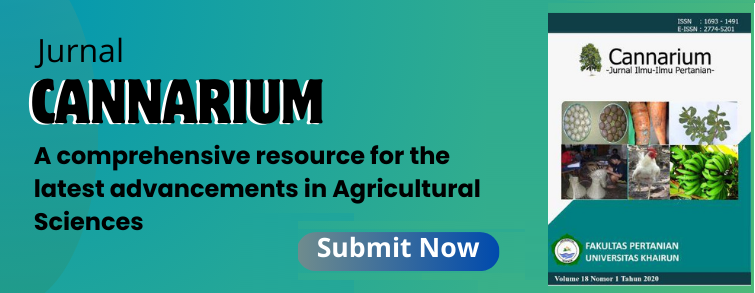Strategi Penghidupan Berkelanjutan Masyarakat Sekitar Kawasan Hutan Di Pulau-Pulau Kecil (Studi Kasus Di Pulau Maitara Provinsi Maluku Utara)
Sari
Keywords: livelihood assets, sustain, environment utilization, small island
Teks Lengkap:
PDF 26-29Referensi
Ariani, Dwi-Rina.dan Harini, R. (2012) Tekanan penduduk terhadap lahan pertanian di kawasan pertanian. Jurnal Bumi Indonesia, 1 (3).
Bank Dunia. (2010). Adaptasi Terhadap Perubahan Iklim. Retrieved From http://siteressources.worldbank.org/INTIINDONESIA/Resources/Publication/28002020-1235115695188/58471791258084722370/Adaptasi Terhadap Perubahan Iklim .pdf
Baiquni. M. (2006). Pengelolaan Sumberdaya Pedesaan dan Strategi Penghidupan Rumah Tangga di Provinsi Daerah Istimewa Yogyakarta Pada Masa Krisis (1998-2003). (unpublished doctoral dissertation). Program Pascasarjana, Universitas Gadjah Mada, Yogyakarta, Indonesia.
Carney D. (ed.) (1998). Sustainable Rural Livelihoods: What contribution can we make? London: Department for International Development (DFID).
Coleman S. (1988). Social Capital in the Creation of Human Capital. The American Journal of Sociology, Vol. 94, Supplement: Organizations and Institutions: Sociological and Economic Approaches to the Anlaysis of Social Stucture, pp. S95-S120. The University of Chicago Press.
DFID. (1999a, 2000b, 2001). Sustainable Livelihoods Quidance Sheets. Retrieved from www.livelihoods.org.
Dharmawan AH. (2001). Farm Household Livelihood Strategies and Rural SocioEconomic Change in Rural Indonesia. Kiel: Wissenchafts Verlag Vauk.
Ellis. F. (2000). Rural Livelihoods and diversity in developing countries. Oxford : Oxford University Press. Chapter 1
Fraenkel. J.R. & Wallen. N.E. (1993). How To Design and Evaluate Research in Education. Singapore : McGrow-Hill.
Fukuyama. (1995). Trust: The Social Virtues and The Creation of Prosperity, New York: the Free Press.
Geertz C. (1963). Agricultural Involution: The Processes of Ecological Change in Indonesia. Berkeley: University of California Press.
Gay. L. R., & Diehl, P.L. (1992). Research Methods For Business and Management. New York : Macmillan.
Scooness, I. (1998). Sustainable Rural Livelihoods: A Framework For Analysis. Working Paper No. 72. Retrieved from https://www.staff.ncl.ac.uk/david.harvey/ AEF806/Sconnes1998.pdf
White, B. (1991). Economic diversification and agrarian change in rural Java 1900-1990. In Paul Alexander, P. Boomgaard, and B. White (Eds.), In the shadow of agriculture: Non-farm activities in the Javanese economy, pastand present (pp.41-69). Amsterdam: Royal Tropical Institute.
DOI: https://doi.org/10.33387/cannarium.v20i1.4861
Refbacks
- Saat ini tidak ada refbacks.
##submission.copyrightStatement##
| Journal Policies | Submissions | People | Â Information |
Editorial Officer Cannarium
Faculty of Agriculture, Universitas Khairun
Jl. Jusuf Abdurahman, Gambesi, Ternate, North Maluku - Indonesia
E-mail : cannarium@unkhair.ac.id or cannarium.unhkair@gmail.com
Cannarium Publisher Faculty of Agriculture, Universitas Khairun This work is licensed under a Creative Commons Attribution-NonCommercial-ShareAlike 4.0 International License.


